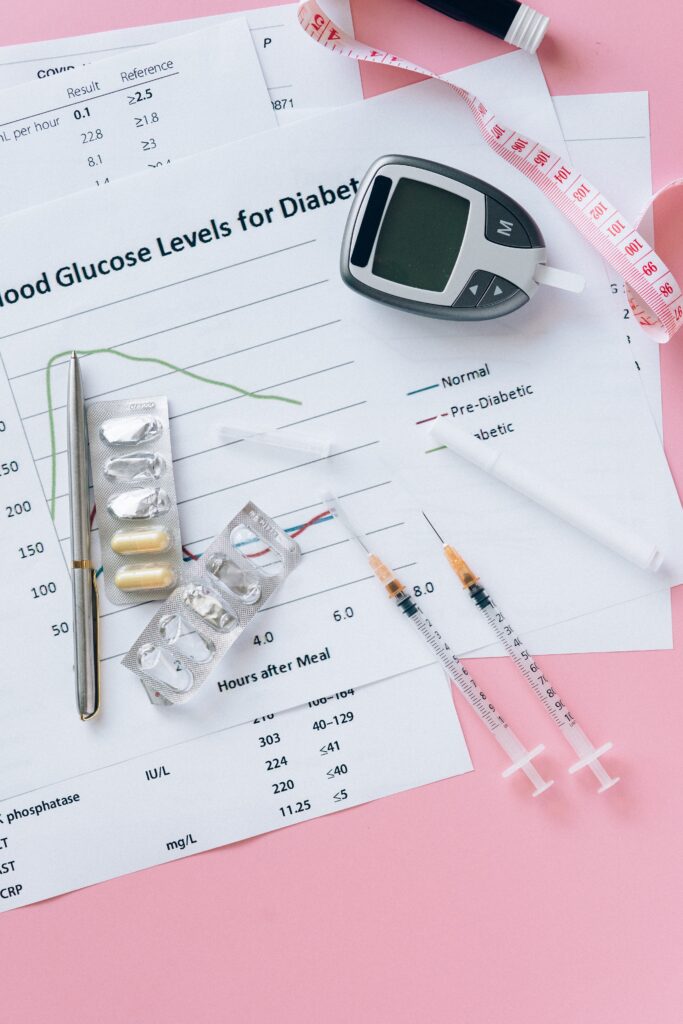ntroduction 😊
Today, we’re diving headfirst into the fascinating world of genetics and its profound impact on our health. Specifically, we’re going to explore the importance of genetic testing when it comes to Type 2 diabetes. 🧬
Did you know that your genes play a significant role in your risk of developing Type 2 diabetes? It’s not just about lifestyle choices; your genetic makeup can influence your susceptibility to this chronic condition. In this blog, we’ll zoom in on the IRS1 gene, uncovering its pivotal role in Type 2 diabetes and why genetic testing is crucial. Get ready for a journey through your DNA! 🚀
Before we delve into the world of genetics, let’s start with the basics. Type 2 diabetes is a metabolic disorder characterized by elevated blood sugar levels. While lifestyle factors like diet and exercise certainly play a role, genetics can’t be ignored.
1. Understanding Type 2 Diabetes 💡
According to the American Diabetes Association, genetics contribute to about 30-40% of a person’s risk for developing Type 2 diabetes. 📈 That’s a significant chunk!
2. The IRS1 Gene – A Genetic Player in Diabetes 🧬
Now, let’s talk about IRS1, the gene that has piqued the interest of scientists worldwide. IRS1, short for “Insulin Receptor Substrate 1,” is a key player in the body’s insulin signaling pathway.
🔬 Research has shown that variations in the IRS1 gene can impact how our bodies respond to insulin. This is a big deal because insulin is crucial for regulating blood sugar levels. When IRS1 isn’t functioning optimally due to genetic variations, it can contribute to insulin resistance, a hallmark of Type 2 diabetes.
3. Genetic Testing – A Window into Your Health 🧬🔍
So, why should you consider genetic testing for Type 2 diabetes risk? Well, think of it as a peek into your genetic crystal ball. With a simple DNA test, you can uncover whether you carry genetic variants associated with a higher risk of developing Type 2 diabetes.
The information you gain from genetic testing is empowering. It allows you to take proactive steps to mitigate your risk. Plus, knowing your genetic predisposition can help you and your healthcare provider tailor a personalized prevention and management plan.
4. Lifestyle and Genetics – A Winning Combination 💪
Don’t worry; it’s not all doom and gloom. Even if your genetics predispose you to Type 2 diabetes, lifestyle modifications can make a significant difference. A healthy diet, regular exercise, and stress management can all play pivotal roles in reducing your risk.
Studies have shown that individuals with a high genetic risk for Type 2 diabetes who maintain a healthy lifestyle can slash their risk by nearly 75%. 🏃♀️🥗 It’s all about making positive choices!
Conclusion: Embrace Your Genetic Journey! 🌟
In the grand scheme of things, our genes are like the ingredients that make up the recipe of our lives. Understanding their role, especially when it comes to health conditions like Type 2 diabetes, empowers us to make informed decisions.
Remember, your genetics don’t define your destiny. Armed with knowledge and a dash of determination, you can take control of your health journey. Genetic testing, like that focused on the IRS1 gene, offers a valuable tool to help you navigate this path.
So, whether you’re considering genetic testing or simply interested in the science behind Type 2 diabetes, keep that curiosity alive. Your health journey is a unique adventure, and understanding the role of genetics is one of its most exciting chapters. 🧬📘
Stat Reference: According to the American Diabetes Association, genetics contribute to about 30-40% of a person’s risk for developing Type 2 diabetes. [Source: American Diabetes Association] (https://www.diabetes.org/resources/statistics/statistics-about-diabetes)
